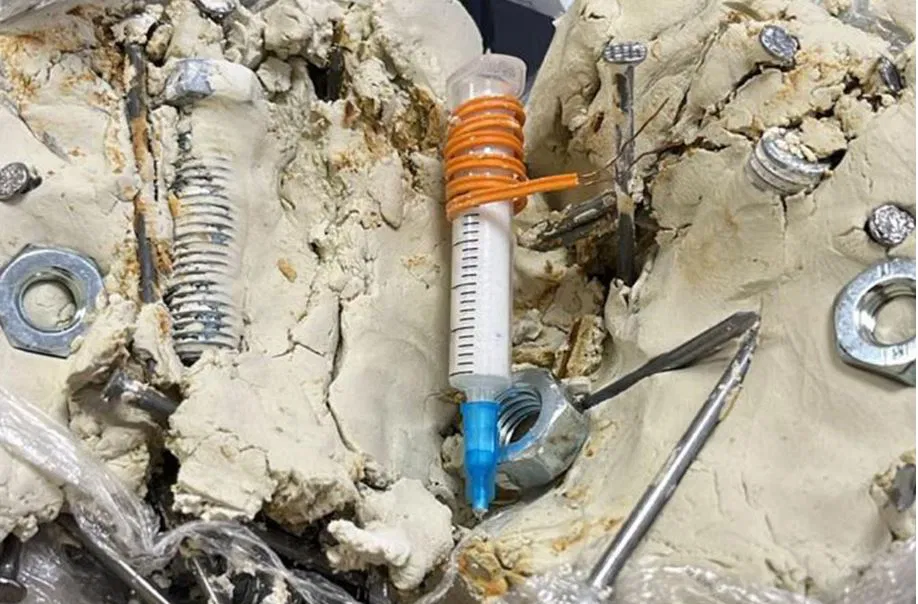By Olivier Acuña Barba
Vladimir Putin has made very clear he has no interest in peace. “Ukraine is ours,” he said a few days before launching Russia’s largest aerial strike (537 missiles and drones). The massive attack follows news that the Ukrainian children abducted by Russia might never return home, and the recruitment of young individuals to become unwitting suicide bombers.
The Ukrainian air force told the AP that they shot down 249 Russian drones and that 226 more were lost, likely due to technical issues. The source also told the US-headquartered news agency that one of its F-16 warplanes supplied by its Western partners had crashed after sustaining damage while shooting down air targets. The pilot died.
In the meantime, The Guardian narrates the story of Oleh, a 19-year-old, who found a job via a Telegram channel offering day work. The money was good, $1,000. All he had to do was travel from his home in eastern Ukraine to the western city of Rivne. There, he would be given a rucksack containing a paint canister, and all he had to do was spray outside the local police station.
Built for remote detonation
However, when he opened up the bag outside the Rivne police station, he was horrified that instead of a paint canister, there was what he believed was a homemade bomb with protruding wires and a mobile phone attached to it, meant for remote detonation.
The Guardian says that to date, Ukrainian police have reported more than a dozen attacks in which the perpetrators were either injured or killed.
Russia’s sabotage campaign inside Ukraine started last spring, SBU spokesperson Artem Dekhtiarenko told the Guardian. The acts initially were arson attacks on military vehicles, conscription offices and post offices. It was primarily aimed at western Ukrainian regions, far from the front.
The attackers, primarily teenagers, were recruited via Telegram, like Oleh. They were tasked with lighting the fires and taking videos of them. Those videos were later widely shared across Russia to demonstrate the growing “discontent” in Ukraine.
“These attacks were part of a secret shadow war, raging in parallel with the conflict on the frontlines. Russia is also carrying out arson and sabotage attacks in European countries,” according to multiple Western intelligence agencies, The Guardian said.
Arsonists replaced by ‘suicide’ bombers
The suicide bombers soon replaced the arson tactics. “They started the mass recruitment of Ukrainians to plant bombs: in cars, near conscription offices, near police departments, and so on,” said Dekhtiarenko.
The Guardian interviewed Oleh, who showed them all the Telegram conversations with a person identified as Alexander. This person sent Oleh $200 in crypto for expenses, which the British news organisation corroborated.
Olen, who asked his friend Serihiy to join him in the job, was being watched from the moment he picked up the bomb, according to a source that spoke with The Guardian. Ukrainian investigators already had leads, as three days earlier, Rivne had experienced a very similar attack. A 21-year-old unemployed individual was recruited on Telegram to collect a device and transport it to one of the city’s military conscription offices. The device exploded, killing the attacker and wounding eight soldiers.
Oleh and Serhiy are in jail awaiting trial. If found guilty, each faces up to 12 years in prison. European intelligence services acknowledge that Ukraine is Russia’s testing sandbox for testing terrorist attacks, wondering if Putin might also start carrying out attacks in EU and NATO member countries.
Stealing the future of Ukraine
Russia is also attempting to steal the future of Ukraine by way of child abduction, according to a Reuters report. Kyiv says about 35,000 children have been stolen to Russia or Russian-occupied territory since the war began three years ago, Reuters added.
Speaking on the sidelines of an international summit in Switzerland about the war, Mykola Kuleba, the leader of a Ukrainian charity working to return the children, said, “Russia is stealing our future. They base their strategy on deception, indoctrination of children, and genocide of the Ukrainian nation.”
Russia has refused to return the children to Ukraine. One Moscow official accused Ukraine of “staging a show on the topic of lost children” during ceasefire talks in Turkey this month, The Guardian revealed in a separate report.
Nathaniel Raymond, executive director of Yale’s Humanitarian Research Lab, which has been investigating the child abductions, told The Guardian that, “This is likely the largest child abduction in war since world war two – comparable to the Germanification of Polish children by the Nazis.”
Raymond added: “When Russians started, they thought they were going to be victorious quickly, so this programme was rolled out, not to take these kids and hold them, but to be able to Russify Ukraine.”
